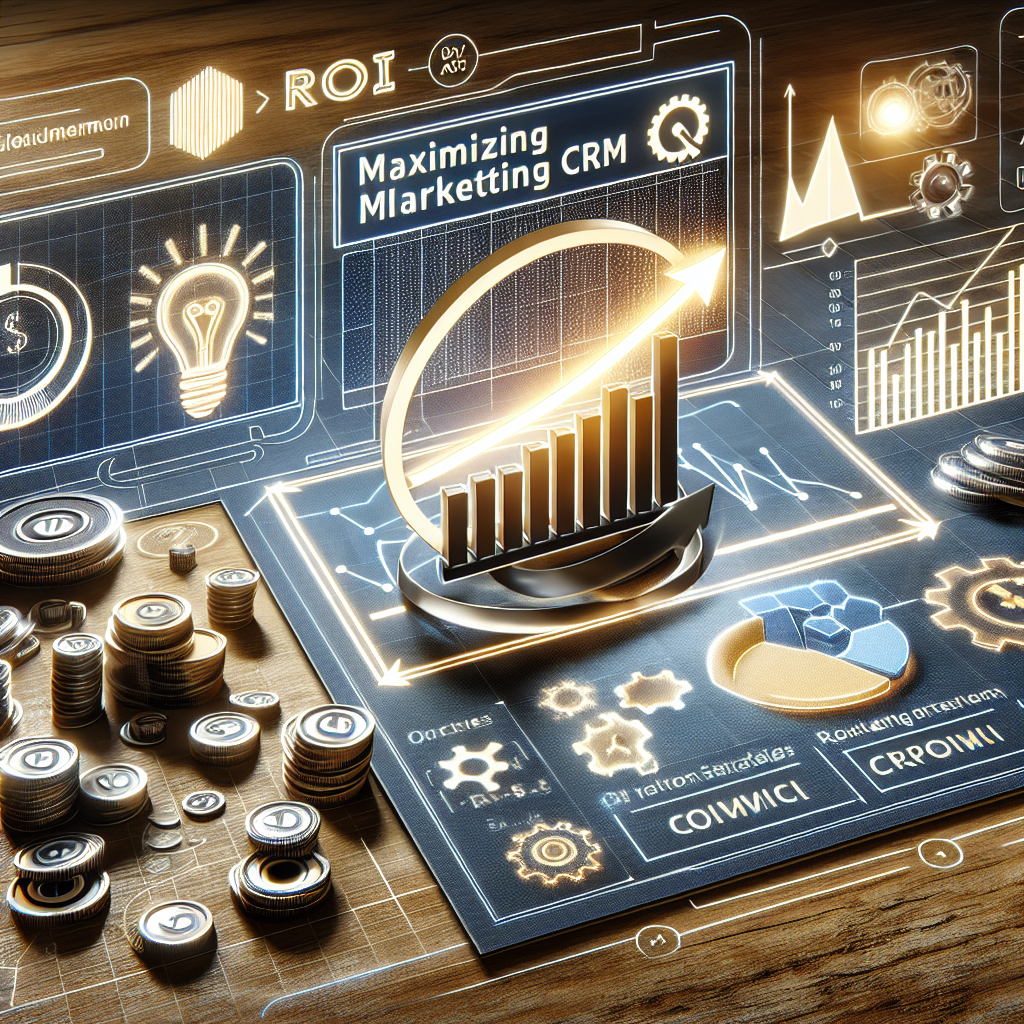Maximizing ROI with Marketing CRM: Strategies for Effective Customer Relationship Management

Introduction
Customer Relationship Management (CRM) is a strategy that organizations use to manage interactions with customers and potential customers. By leveraging CRM tools, businesses can streamline their marketing efforts, improve customer relationships, and ultimately maximize their Return on Investment (ROI). In this blog, we will explore strategies for effective CRM implementation to help businesses optimize their marketing efforts and boost ROI.
Understanding CRM
CRM software allows businesses to track customer interactions, analyze data, and automate marketing processes. By centralizing customer data in a CRM system, businesses can gain valuable insights into customer behavior, preferences, and buying patterns. This information can be used to create targeted marketing campaigns, personalize customer interactions, and improve overall customer satisfaction.
Benefits of CRM
- Improved customer relationships
- Increased sales and revenue
- Enhanced marketing efficiency
- Better customer retention
- Streamlined business processes
Strategies for Effective CRM Implementation
1. Define Your Objectives
Before implementing a CRM system, it is important to clearly define your objectives and goals. Determine what you want to achieve with your CRM strategy, whether it is to increase sales, improve customer satisfaction, or streamline marketing processes. By setting clear objectives, you can align your CRM strategy with your business goals and measure its impact on ROI.
2. Choose the Right CRM Software
There are many CRM software options available in the market, so it is important to choose one that aligns with your business needs and objectives. Consider factors such as ease of use, scalability, customization options, and integration capabilities when selecting a CRM system. Ensure that the software can effectively track customer interactions, analyze data, and automate marketing processes to maximize ROI.
3. Centralize Customer Data
Centralizing customer data in a CRM system is essential for effective customer relationship management. By storing all customer information in one place, businesses can easily access and analyze data to gain insights into customer behavior and preferences. This information can be used to create personalized marketing campaigns, target specific customer segments, and improve overall customer satisfaction.
4. Segment Your Customer Base
Segmenting your customer base allows you to target specific customer groups with personalized marketing messages. By dividing customers into segments based on demographics, behavior, or buying patterns, businesses can create targeted marketing campaigns that are more likely to resonate with their target audience. This can lead to increased sales, improved customer retention, and higher ROI.
5. Automate Marketing Processes
CRM software allows businesses to automate marketing processes such as email marketing, lead nurturing, and customer follow-ups. By automating these processes, businesses can save time and resources, while ensuring consistent and timely communication with customers. This can lead to increased efficiency, higher conversion rates, and improved ROI.
FAQs
What is CRM?
CRM stands for Customer Relationship Management, which is a strategy that businesses use to manage interactions with customers and potential customers. By leveraging CRM tools, businesses can streamline their marketing efforts, improve customer relationships, and ultimately maximize their Return on Investment (ROI).
How can CRM help businesses maximize ROI?
CRM software allows businesses to track customer interactions, analyze data, and automate marketing processes. By centralizing customer data in a CRM system, businesses can gain valuable insights into customer behavior, preferences, and buying patterns. This information can be used to create targeted marketing campaigns, personalize customer interactions, and improve overall customer satisfaction, leading to increased sales and revenue.
What are the benefits of CRM?
- Improved customer relationships
- Increased sales and revenue
- Enhanced marketing efficiency
- Better customer retention
- Streamlined business processes

